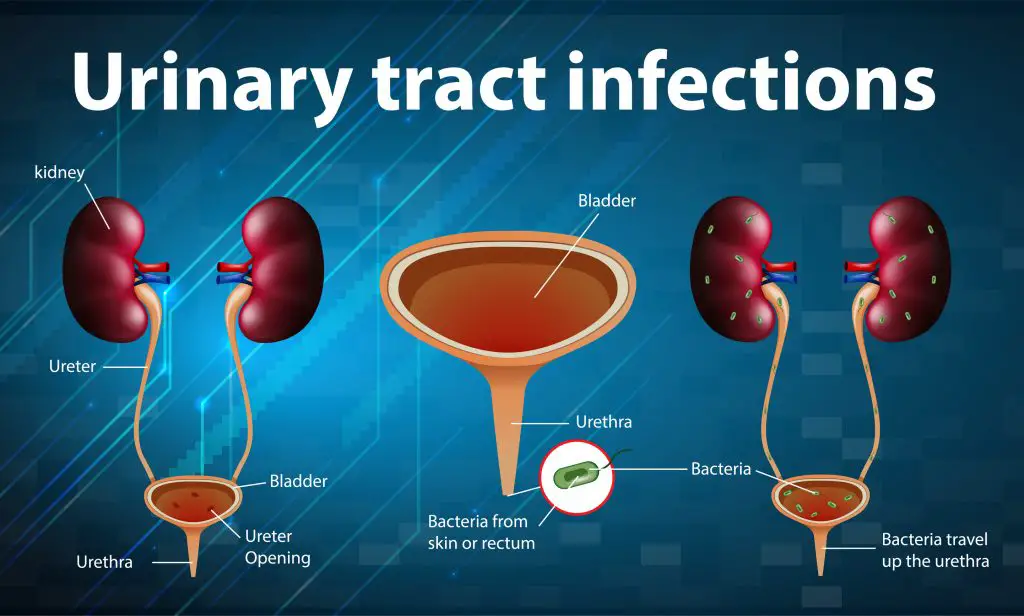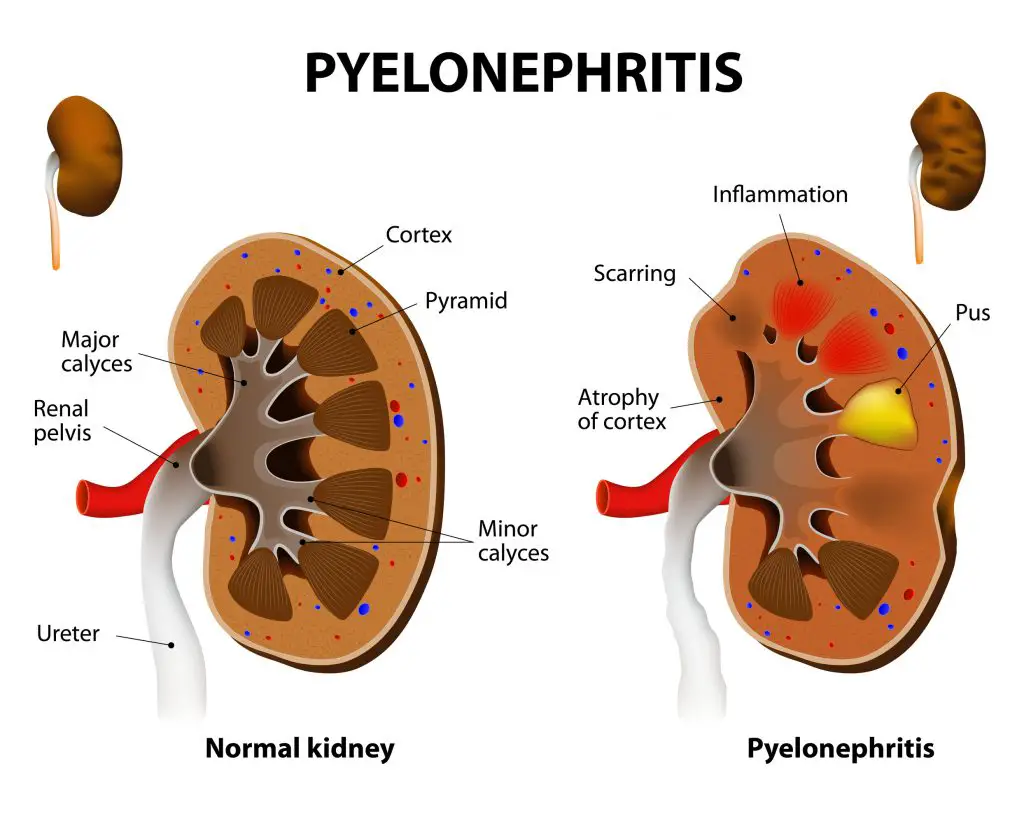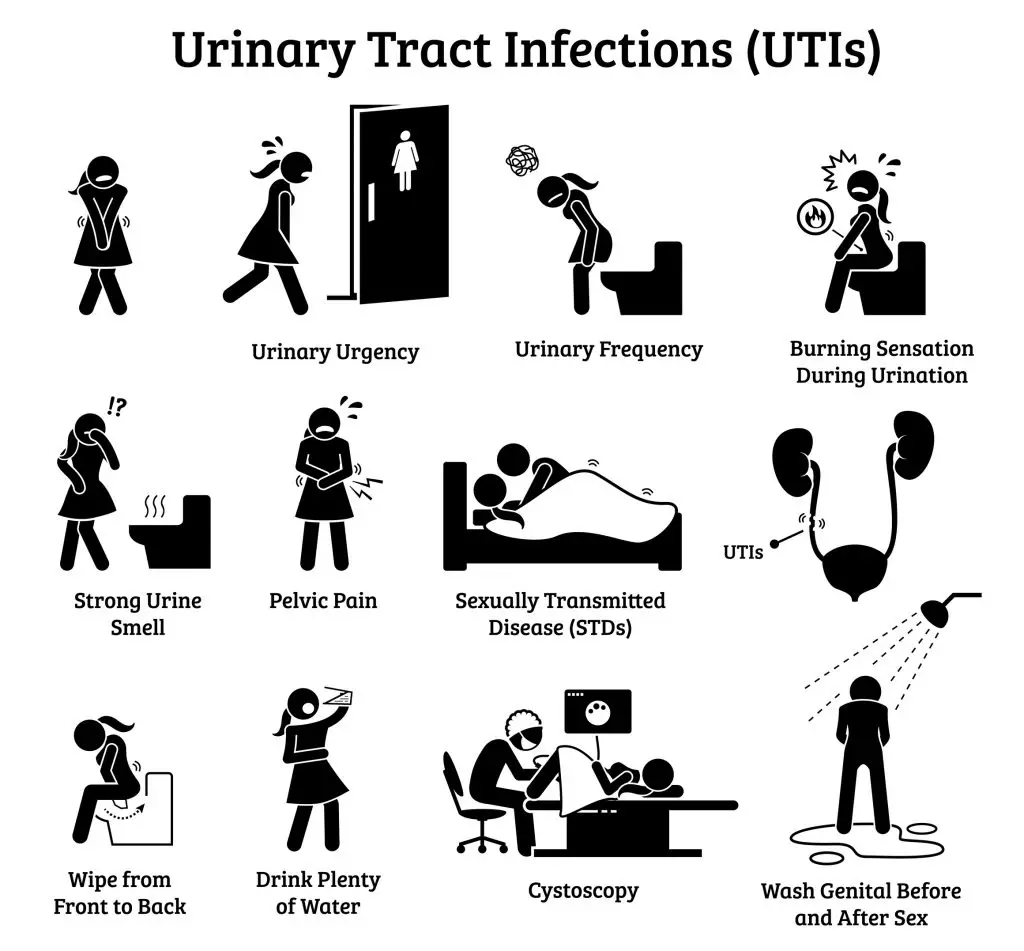How Do I Know If I Have a UTI?

As an affiliate, we may earn a commission from qualifying purchases. We get commissions for purchases made through links on this website from Amazon and other third parties.
UTIs are common in both men and women of all ages. The urinary tract (which includes the kidneys, bladder, urethra, and ureters) is made up of many parts, and when something disrupts the flow of urine through these organs it can lead to symptoms like fever, and pain when urinating, and in women bladder pressure and pelvic discomfort.
Women are more likely to have a UTI than men because their urethras are shorter so pathogens can more easily reach the bladder. As we age we become more likely to develop UTIs because the integrity of our bladder muscles has weakened with age and can no longer support a full bag of urine for very long.
Some common root causes of UTIs include holding in your urine when you can’t or don’t want to use a bathroom, pregnancy, diaphragm/sponge usage in women, and conditions like diabetes and spinal cord injuries that affect the nerves in the bladder.
What are urinary tract infections (UTIs) and who should care?
A UTI is an infection in your urinary tract, usually caused by too many bacteria. The urinary tract is your body’s system for making and removing urine.
This urinary tract includes:
- Kidneys: The organs that filter your blood and make urine
- Ureters: The tubes that carry urine from your kidneys to your bladder
- Bladder: The organ that collects and stores urine until you are able to go to the bathroom
- Urethra: The tube that carries urine from your bladder to outside your body
- External opening: The opening where urine exits your body
Those with female anatomy have two external openings: one for urine to exit the body (the urethral opening) and another for sex, menstruation, and childbirth (the urethral opening) (the vagina). The majority of persons who have a penis only have one external hole. This hole allows both urine and sperm to pass through.
E. coli bacteria are the most common cause of urinary tract infections. These bacteria generally live in your gut and are unaffected by antibiotics (where stool comes out). However, if E. coli makes its way from the anus to the urethra, it can enter the urinary tract and multiply.
The infection has the potential to spread throughout the entire urinary tract. Other types of bacteria or fungi can cause a UTI in rare situations.

Types of UTIs
There are three types of urinary tract infections. The name is determined by the location of the infection:
- Urethritis is a condition in which the urethra becomes inflamed. (urethra infection)
- Cystitis is a condition that affects the bladder (bladder infection)
- Pyelonephritis is a kind of pyelonephritis (kidney infection)
Urethritis
Urethritis refers to inflammation of the urethra, which is the tube through that urine flows through the bladder. Urethritis may be caused by a variety of things, including infection, irritation, or injury.
The most common symptom of urethritis is pain during urination, though other symptoms may also occur. Treatment for urethritis depends on the underlying cause but may include medications or other therapies.
Cystitis
Cystitis is a condition that results in inflammation of the bladder. This inflammation can be due to a variety of factors, including infection, chemicals, or physical injury. Cystitis symptoms can include pain or burning during urination, frequent urination, and blood in the urine.
Treatment for cystitis typically includes antibiotics to treat any infection, pain relief, and increased fluid intake. In some cases, more aggressive treatment may be necessary. Cystitis is a common condition, especially in women.
It is important to see a doctor if you think you have cystitis so that the cause can be identified and treated appropriately.
Pyelonephritis
Pyelonephritis is an infection of the kidney that is most often caused by a bacterial infection. Symptoms can include fever, flank pain, nausea, and vomiting. Treatment typically involves antibiotics and hospitalization. Pyelonephritis can often be prevented by taking precautions to avoid urinary tract infections.

How do you know if you have a UTI?
If you’re experiencing any of the following symptoms, you may have a UTI:
- A strong, persistent urge to urinate
- A burning sensation when urinating
- Passing frequent, small amounts of urine
- Cloudy or bloody urine
- Strong-smelling urine
- Pelvic pain (in women)
- Rectal pain (in men)
If you think you may have a UTI, it’s important to see a doctor as soon as possible. A UTI can become a serious health problem if it’s not treated promptly.
Who is prone to getting a UTI?
UTIs are the most frequent illness in the United States that does not require hospitalization. In fact, over 60% of women and 12% of men will get at least one UTI during their lifetime.
UTIs can affect anyone, young or old, although some people get them more frequently than others. Your unique anatomy, medical history, and lifestyle might all influence your chances of acquiring a UTI.
People with vaginal canals, for example, are more susceptible to developing UTIs due to their structure. The urethra is relatively close to the anus in these persons. In addition, the urethra is short.
Bacteria may spread more easily as a result of this. On the other hand, because there is more distance between the anus, urethra, and bladder in persons who have a penis, bacteria must travel further to establish an infection.

People with vaginas may also have a higher risk for UTIs if they:
- Are pregnant
- Are sexually active
- Have gone through menopause
- Use oral contraceptives
- Use a diaphragm or spermicide for birth control
- Have diabetes
- Have any condition that blocks urine flow (like an enlarged prostate or kidney stone)
- Have a catheter (tube to drain urine), or recently had a catheter removed
Certain groups of people may also be more likely to get UTIs. This includes people who are:
- Transgender: Restroom avoidance, genital surgeries, and tucking can all increase the risk of UTIs. In addition, some transgender people may feel uncomfortable discussing their urinary tract health with a healthcare provider due to the sensitive nature of their physical condition. However, no one should feel uncomfortable with who they are and therefore striving to get a health condition resolved should always be your first priority.
- Pregnant: Hormonal changes and pressure on the bladder during pregnancy can make UTIs more likely. This can increase during the term of pregnancy as more pressure builds, but it is a common ailment.
- Post-menopausal: Lowered estrogen levels can cause changes in the urethra and bladder. These changes may make it easier for bacteria like E. coli to cause an infection. Again, seeking medical advice and making changes in your diet can all benefit you.
In conclusion
UTIs are a common infection, especially among women. If you think you may have a UTI, it’s important to see your doctor as soon as possible for treatment. Untreated UTIs can lead to more serious health problems, so don’t wait if you think you may be infected.
In the meantime, drink plenty of fluids and urinate as soon as you feel the urge to help flush out the infection.
A quick reminder ..
Probiotics.tips aim to provide the most up-to-date information, help, and advice for YOU to make informed decisions about probiotics and UTIs. If you are unsure or uncertain and require more clarity, please reach out to us and we will gladly come back and advise you as best we can.
The best means to reach us is via email at info@probiotics.tips or fill out the form on our Contact Us page – click here.
About Us
Our goal is to empower you with concise probiotic guidance for a healthier gut. With expert advice, we provide the knowledge to improve your well-being and navigate the world of probiotics efficiently, ensuring you achieve optimal gut health.
- Can You Take Probiotics While Water Fasting?
- Does Fasting Help Microbiome Diversity and Functionality?
- Does Fasting Help Your Bowels
- Does Fasting Help Probiotics? Understanding Gut Health Benefits
- Does Fasting Help the Gut: Understanding the Impact on Digestive Health
Disclaimer
As an affiliate, we may earn a commission from qualifying purchases. We get commissions for purchases made through links on this website from Amazon and other third parties.
Check these out on Amazon








